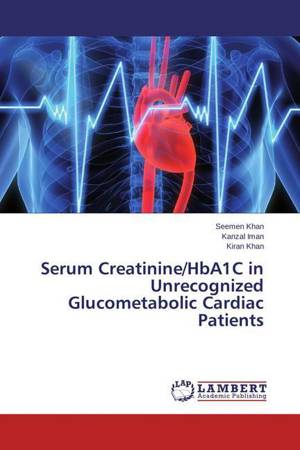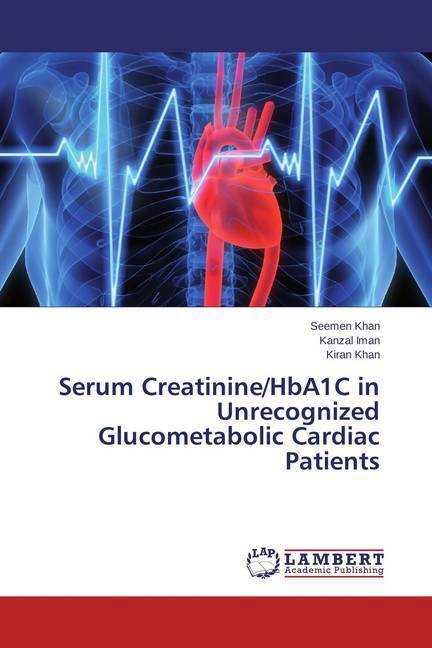
- Afhalen na 1 uur in een winkel met voorraad
- Gratis thuislevering in België vanaf € 30
- Ruim aanbod met 7 miljoen producten
- Afhalen na 1 uur in een winkel met voorraad
- Gratis thuislevering in België vanaf € 30
- Ruim aanbod met 7 miljoen producten
Zoeken
Serum Creatinine/HbA1C in Unrecognized Glucometabolic Cardiac Patients
Seemen Khan, Kanzal Iman, Kiran Khan
Paperback | Engels
€ 69,45
+ 138 punten
Omschrijving
Serum creatinine is an important by product produced by non-enzymatic degradation of muscle creatine and it is filtered out of the blood by the kidneys. The level of serum creatinine is maintained by the balance between its generation and excretion. Serum creatinine concentration in cardiac patients serves as a marker of renal damage. Glycated haemoglobin (HbA1c) represents a reliable average of blood glucose over preceding three months. Studies have proposed that the association of HbA1c with cardiovascular risk may be partially mediated by the development of hypertension. Therefore, this study was designed to estimate serum creatinine and HbA1c levels in cardiac patients with unrecognized glucometabolism and to find a correlation between serum creatinine, HbA1c, blood pressure and the duration of cardiac problem. Blood samples were collected from 25 cardiac patients of 30-65 years of age with unrecognized glucometabolism and undiagnosed renal disturbances and 25 healthy individuals who did not meet any cardiac issues, between the same age group, were taken as control.
Specificaties
Betrokkenen
- Auteur(s):
- Uitgeverij:
Inhoud
- Aantal bladzijden:
- 164
- Taal:
- Engels
Eigenschappen
- Productcode (EAN):
- 9783659483899
- Verschijningsdatum:
- 13/03/2015
- Uitvoering:
- Paperback
- Afmetingen:
- 150 mm x 220 mm
- Gewicht:
- 249 g

Alleen bij Standaard Boekhandel
+ 138 punten op je klantenkaart van Standaard Boekhandel
Beoordelingen
We publiceren alleen reviews die voldoen aan de voorwaarden voor reviews. Bekijk onze voorwaarden voor reviews.








